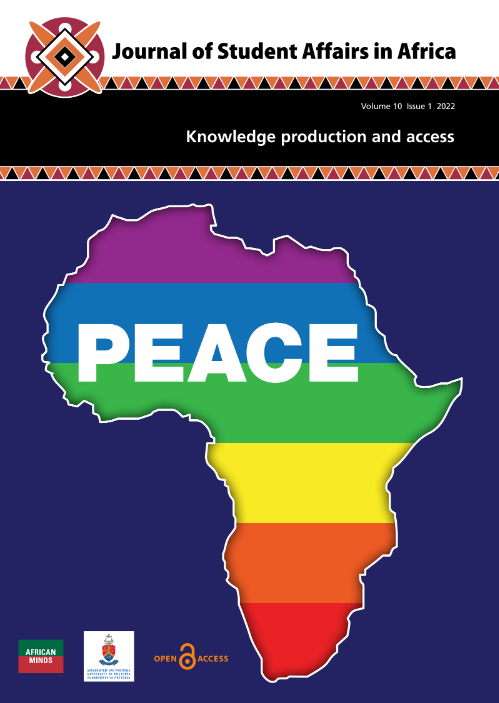A Morphogenesis Account of Student Leaders’ Development of their Agency in their Undergraduate Residences at Stellenbosch University
DOI:
https://doi.org/10.24085/jsaa.v10i1.3526Keywords:
student leadership, residences, morphogenetic approach, university transformation, institutional culture, student identityAbstract
This article offers an account of the development of student leaders’ agency within the institutional culture of their residences at Stellenbosch University (SU). Residences at formerly white universities such as SU are struggling to align their welcoming practices and cultures to the requirements for immersion of the diverse students who now live in them. This article focuses on student experiences of alienation in SU residences with a particular interest in how they develop adaptative responses to establish a place for themselves in them. It is based on focus group discussions with student leaders which provided insights into their perceptions of their residence cultures and how they established their agency in this environment. The analysis presented in the article is based on Archer’s theoretical approach to morphogenesis. The first data section of the article discusses the interaction between the students’ immersion in the institutional culture of their residences, on the one hand, and the acquisition of their initial identifications in response to the environmental cues of their residences, on the other. The second data section discusses the students’ active acquisition of their social identities, which allowed them to establish their aspirant pathways at the residence and the university. Overall, the article offers an account of morphogenesis at work at the institutional level of SU’s residences with a specific focus on the adaptive behaviour of student leadership in this university context.
Downloads
Published
Issue
Section
License
Copyright (c) 2022 Aslam Fataar

This work is licensed under a Creative Commons Attribution-NonCommercial-ShareAlike 4.0 International License.
Authors who publish with this journal agree to the following terms:
Authors retain copyright and grant the journal right of first publication with the work simultaneously licensed under the Creative Commons Attribution Share-alike 4.0 International License that allows others to share the work with an acknowledgement of the work's authorship and initial publication in this journal.
Authors are able to enter into separate, additional contractual arrangements for the non-exclusive distribution of the journal's published version of the work (e.g., post it to an institutional repository or publish it in a book), with an acknowledgement of its initial publication in this journal.
Authors are permitted and encouraged to post their work online (e.g., in institutional repositories or on their website) prior to and during the submission process, as it can lead to productive exchanges, as well as earlier and greater citation of published work (See: The Effect of Open Access).


